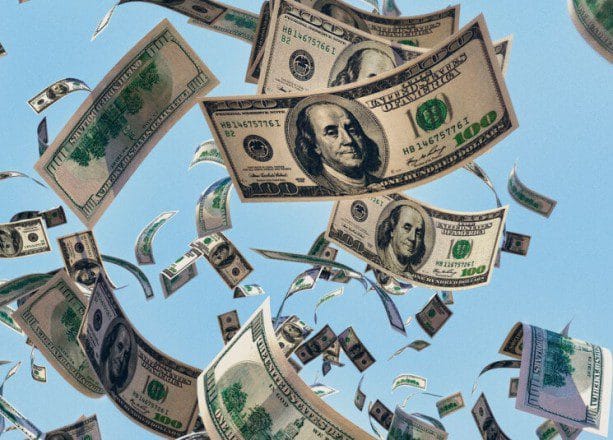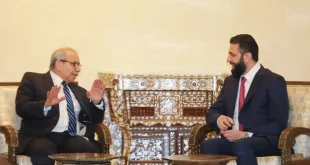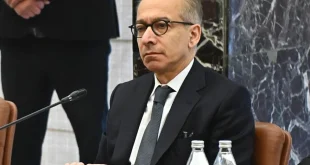خطة ميقاتي لشطب 80% من الودائع سقطت، وسلامة ليس المسؤول الوحيد عن الانهيار
أدى انتخاب رئيسٍ للجمهورية في لبنان إلى إشاعة الارتياح بين المستثمرين، مما شكل صدمة إيجابية للعديد من الدول العربية والأجنبية. في الأسابيع الأولى من كانون الثاني 2025، ارتفعت الاحتياطيات السائلة الأجنبية بمقدار 211 مليون دولار، بعدما شهد مصرف لبنان انخفاضًا في احتياطي العملات الأجنبية بحوالي 530 مليون دولار في الأشهر الأخيرة من 2024 بسبب الحرب في غزة.
ساهم قرار مصرف لبنان بزيادة الدفعات الشهرية للمودعين خلال الحرب في تراجع الاحتياطي، لكنه تمكّن من تعويض جزء كبير من الخسائر بعد انتخاب الرئيس جوزاف عون. وجاء خطاب قسم الرئيس ليحفّز الأمل ويُشعل حركة بيع الدولار، مما أدى إلى رفع الاحتياطي الأجنبي إلى 10.4 مليارات دولار في منتصف كانون الثاني.
وأوضح الخبير الاقتصادي نسيب غبريل أن الارتفاع الملحوظ في الاحتياطي يعود إلى الارتياح الشعبي نتيجة لما سمعوه في خطاب القسم، مؤكداً على ضرورة أن تتبنى الحكومة الجديدة خطاب الرئيس وتُترجمه إلى إجراءات عملية لتحفيز الاقتصاد وتشجيع القطاع الخاص على العودة للاستثمار في لبنان.
ووفقاً لغبريل، فإن خطاب القسم قدّم رؤية اقتصادية للعهد الجديد، مشيراً إلى أن الحكومة الجديدة ينبغي أن تعمل على تطبيق هذه الرؤية من خلال إجراءات تتعلق بـ إصلاحات قانونية، بسط سلطة الدولة، واستقلالية القضاء، والتي تساهم في إعادة الثقة بالاقتصاد اللبناني.
ورغم هذه الانفراجة، لا يمكن إغفال مسؤولية الدولة في الأزمة المالية الحالية. ففي عام 2023، اتخذ مصرف لبنان قرارًا بوقف إقراض الدولة، وتمكن من سحب 22 تريليون ليرة من السوق لتفادي انهيار سعر الصرف، لكن التعامل مع احتياطي الذهب كان قد يكون حلاً أفضل لحل أزمة المودعين، بحسب الخبراء.
وفي هذا السياق، كان من الممكن استخدام احتياطي الذهب لحل جزء من أزمة صغار المودعين، على أن يتم تعويض الكبار ضمن خطة مالية طويلة الأجل. إلا أن تدخل السياسة في قرارات مصرف لبنان أدى إلى تعثر هذه الحلول، خاصة بعد فشل محاولات شطب 80% من أموال الكبار المودعين.
أشار غبريل إلى أن جزءاً كبيراً من المسؤولية لا يقع فقط على حاكم مصرف لبنان السابق رياض سلامة، بل يتحملها السياسيون في إدارتهم السيئة للقطاع العام وأداء الحكومات المتعاقبة. وأضاف أن 50 مليار دولار من أموال مصرف لبنان تم صرفها على العجز في الموازنة وكهرباء لبنان، مما ساهم في تفاقم الأزمة المالية.
وبحسب تقرير شركة ألفاريز، فإن الدولة حصلت على أموال من المصارف لتمويل العجز في الميزانية، بينما بقيت أموال المودعين محجوزة. ولفت الخبير إلى أنه كان ينبغي على السلطة السياسية معالجة الأزمة بشكل أسرع وفعال، عبر إعادة أموال المودعين ووقف السرقات والتوظيفات العشوائية بدلاً من الانشغال في المشاحنات السياسية.
Mikati's Plan to Write Off 80% of Deposits Fails, and Salama Is Not the Only One Responsible for the Collapse
The election of a new president in Lebanon has reassured investors, providing a positive shock to many foreign and Arab nations. During the first two weeks of January 2025, foreign liquid reserves rose by 211 million dollars, after Lebanon's Central Bank saw a decline of about 530 million dollars in the last three months of 2024, largely due to the Gaza war against Israel.
The Central Bank's decision to increase monthly payments to depositors during the war contributed to the reduction in foreign reserves. However, it managed to recover half of what it lost after President Joseph Aoun's election. The presidential oath speech sparked hope, and a surge in demand for the Lebanese pound led to a massive sell-off of dollars, increasing foreign reserves to 10.4 billion dollars by mid January.
Economist Nasser Ghibril explained that the reserve rise was attributed to the public's relief from what was heard in the presidential speech. He emphasized that the new government should adopt the president’s speech and translate it into practical actions that can encourage the private sector and boost the economy.
Ghibril pointed out that the speech gave a clear economic vision for the new mandate, noting that the new government must implement this vision through actions related to legal reforms, state authority expansion, and judicial independence, which will help restore trust in Lebanon’s economy.
However, despite these positive signals, the government's responsibility for the current financial collapse cannot be overlooked. In 2023, Lebanon's Central Bank decided to halt lending to the government and took quick action to stabilize the currency by withdrawing 22 trillion Lebanese pounds from the market. Yet, experts argue that gold reserves could have been used more effectively to address the depositor crisis.
The gold reserves could have solved part of the crisis for small depositors, with the larger depositors compensated through a long-term financial plan. However, political interference in Central Bank decisions stalled these solutions, especially after failed attempts to write off 80% of large depositors' funds.
Ghibril added that responsibility does not fall solely on former Central Bank Governor Riad Salameh, but on the politicians for their mismanagement of the public sector and successive governments. He also pointed out that 50 billion dollars of Central Bank's funds were spent on budget deficits and Lebanon’s electricity sector, which only exacerbated the financial crisis.
According to Alvarez's report, the state borrowed money from the banks to finance the budget deficit, while depositors’ funds remain frozen. Ghibril emphasized that the political authority should have addressed the crisis quicker, by returning depositors' funds and halting corruption and wasteful hiring, rather than engaging in political disputes.
Translated by economyscopes team
المصدر: ماريا موسى – نداء الوطن
 سكوبات عالمية إقتصادية – EconomyScopes إجعل موقعنا خيارك ومصدرك الأنسب للأخبار الإقتصادية المحلية والعربية والعالمية على أنواعها بالإضافة الى نشر مجموعة لا بأس بها من فرص العمل في لبنان والشرق الأوسط والعالم
سكوبات عالمية إقتصادية – EconomyScopes إجعل موقعنا خيارك ومصدرك الأنسب للأخبار الإقتصادية المحلية والعربية والعالمية على أنواعها بالإضافة الى نشر مجموعة لا بأس بها من فرص العمل في لبنان والشرق الأوسط والعالم




